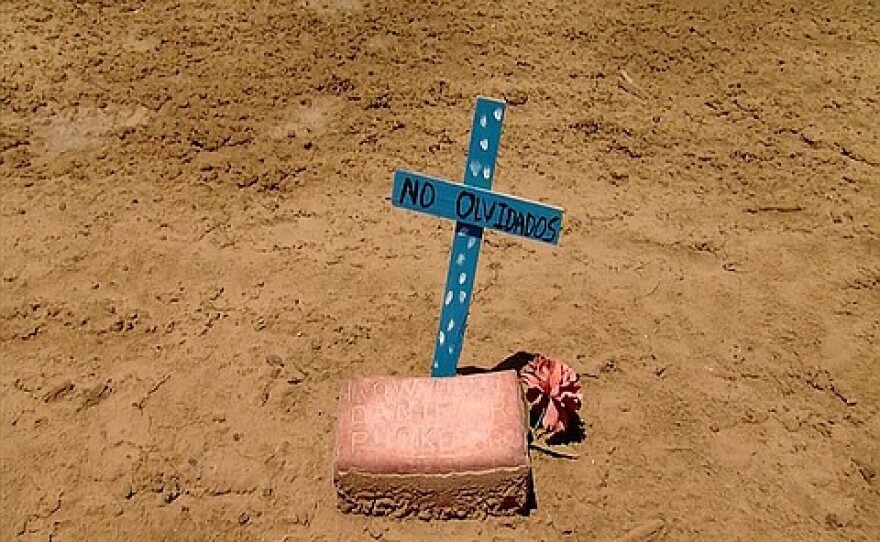
Many people are familiar with the annual Scripps National Spelling Bee. It gets big sponsors, and plenty of media attention including live coverage on ESPN. Organizers of the National Spanish Spelling Bee hope their event will someday get just as much attention.
New Mexico 8th grader Andreas Arreola is the reigning champion of the National Spanish Spelling Bee. “I feel so good winning! It is something that you wish and wish for and then you know you got it. It feels so good!” Andreas said after winning his second straight title in Albuquerque last spring. “It was like a magical moment.”
He beat out the largest field of Spanish spellers that has come out to the event since it began five years ago: 26 spellers from eight different states. That's a fraction of the number of contestants for the Scripps Spelling Bee, and the National Spanish Spelling Bee offers much smaller prizes. Organizers hope to attract more spellers for the 2016 event by moving it to San Antonio, Texas.

David Briseño founded the National Spanish Spelling Bee to raise the status of the Spanish language and boost bilingual education. He said a lack of funding and sponsors often means a lot of the nation’s best Spanish spellers can’t take part.
“To me it is a sense of a loss,” Briseño said. “Somebody who wanted to, who earned that right, and wasn’t able to come and participate because of money.”
The Spanish Spelling Bee comes a long way from humble beginnings in New Mexico’s Gadsden Independent school district, near the US-Mexico border. It began as a school versus school competition more than 20 years ago, and Gadsden students have taken home the national title for the past four years.
Jose Reyes is a bilingual instruction specialist for the district. He said success has followed a major shift in educational attitudes toward bilingual students, compared to when he was a student himself.
Reyes remembers how his own first grade teacher responded to him.
“I used Spanish and I remember her taking me to the sink in the corner and washed my mouth with Borax, with soap,” Reyes said, “and she said you won’t use this language again.”
Spelling bee champ Andreas just graduated out of the English language learner track.
“I didn’t know any English when I came here,” Andreas said.
Briseño said there’s a mistaken impression that most competitors in the National Spanish Spelling Bee are native Spanish speakers. But about half of the 2015 competitors are learning Spanish as a second language, coming from as far away as Virginia, Oregon and Massachusetts.
“People say to me well those Mexican kids ought to be doing pretty well in that because they speak Spanish,” Briseño said. “I said that is not how it goes, by the way it is not all Mexican kids… This is a very diverse group of kids that come together throughout the country participating in the national spelling bee. If you take a picture of all the kids that are competing, you would eat your words.”
Briseño said if the event is going to convince more American parents of the benefits of Spanish and bilingual education, it will need a lot more exposure.
“This thing needs to grow,” Briseño said. “I would love to see a network of sponsors nationally. I want to see representation from all 50 states. I would like to see that representation of sponsors and networks, that there are sources of pay for our students that want to come and participate, so parents don’t have to take the brunt of having to pay for the airfare (and) the hotel costs.”
Briseño hopes the move to San Antonio will help attract more sponsors by reaching a larger Hispanic media market.





